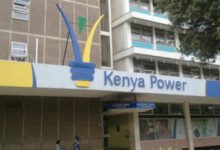
The Energy and Petroleum Regulatory Authority (EPRA) will soon begin a nationwide inspection of energy generation facilities following approval from the International Tracking Standard Foundation (I-TRACK Foundation).
In a statement, the I-TRACK Foundation Board approved EPRA as the local issuer of the International Renewable Energy Certificates (I-REC(E)) in Kenya.
EPRA confirmed that in this new role, the authority has the mandate of inspecting energy generation facilities locally to affirm electricity produced comes from renewable sources.
EPRA DG Daniel Kiptoo noted the new role as a huge milestone stating that the authority has remained steadfast in harnessing renewable energy sources such as geothermal, solar and wind power which has significantly driven this progress.
“Kenya is on the cusp of achieving 100% renewable energy electricity generation which currently stands at 80.04% contribution to the energy mix,” he said.
“Geothermal energy stands at 26.37%, interconnected solar PV systems (12.38%) and wind energy contributed 12.19%.
“The trajectory towards renewable energy is expected to persist as more power projects are completed and connected to the grid from geothermal sources.”
Worth noting, companies with I-REC(E) certificates will have a competitive edge as investors’ attention is geared towards operations that are deemed eco-friendly in line with ESG.
The decision to approve EPRA as the local issuer of the I-REC(E) certificate comes after a rigorous review of the authority’s expertise by the I-TRACK Foundation team.
EPRA’s new role will effectively replace the Green Certificate Company (GCC) as the official inspector of energy-generation facilities across Kenya.
The move aligns with EPRA’s broader objectives to enhance the country’s green energy credentials.
Recently, EPRA has upped its game as a reliable authority in promoting green energy having outlined plans to tackle energy inefficiency across various sectors.
In November, EPRA announced plans to review the Energy (Energy Management) Regulations 2012, which requires facilities consuming more than 180,000 kWh of energy to conduct energy audits at least once every three years and implement the identified energy-saving measures.
Additionally, the Energy (Appliances’ Energy Performance and Labelling) Regulations, 2016 which is also set to be reviewed, enabled EPRA to establish minimum energy performance standards (MEPS) for appliances.
Meanwhile, EPRA’s top leadership is bracing for additional changes following a proposed amendment to the Energy Act, 2019 introduced by Laikipia Women Representative Jane Kagiri, which seeks to further align with the evolving energy sector.
Follow us on WhatsApp, Telegram, Twitter, and Facebook, or subscribe to our weekly newsletter to ensure you don’t miss out on any future updates. Send tips to editorial@techtrendsmedia.co.ke



